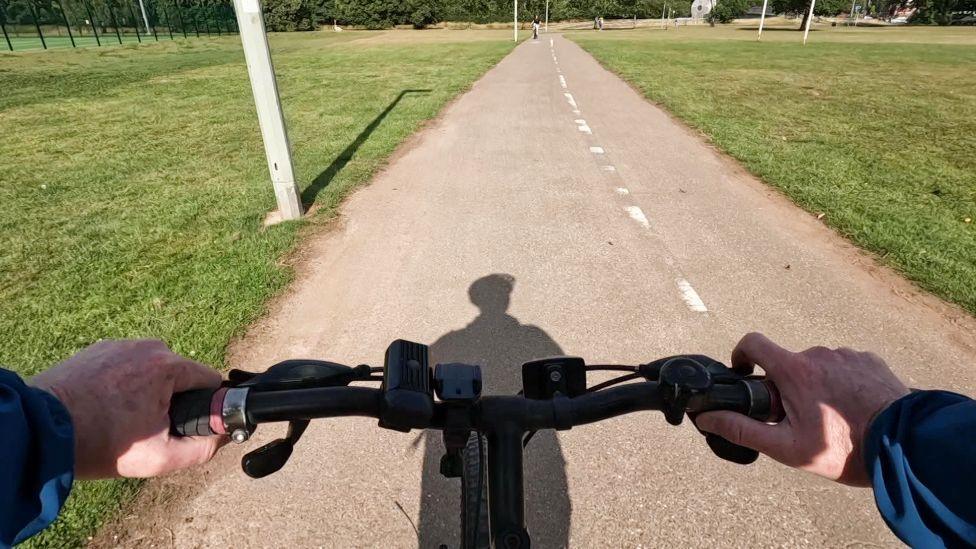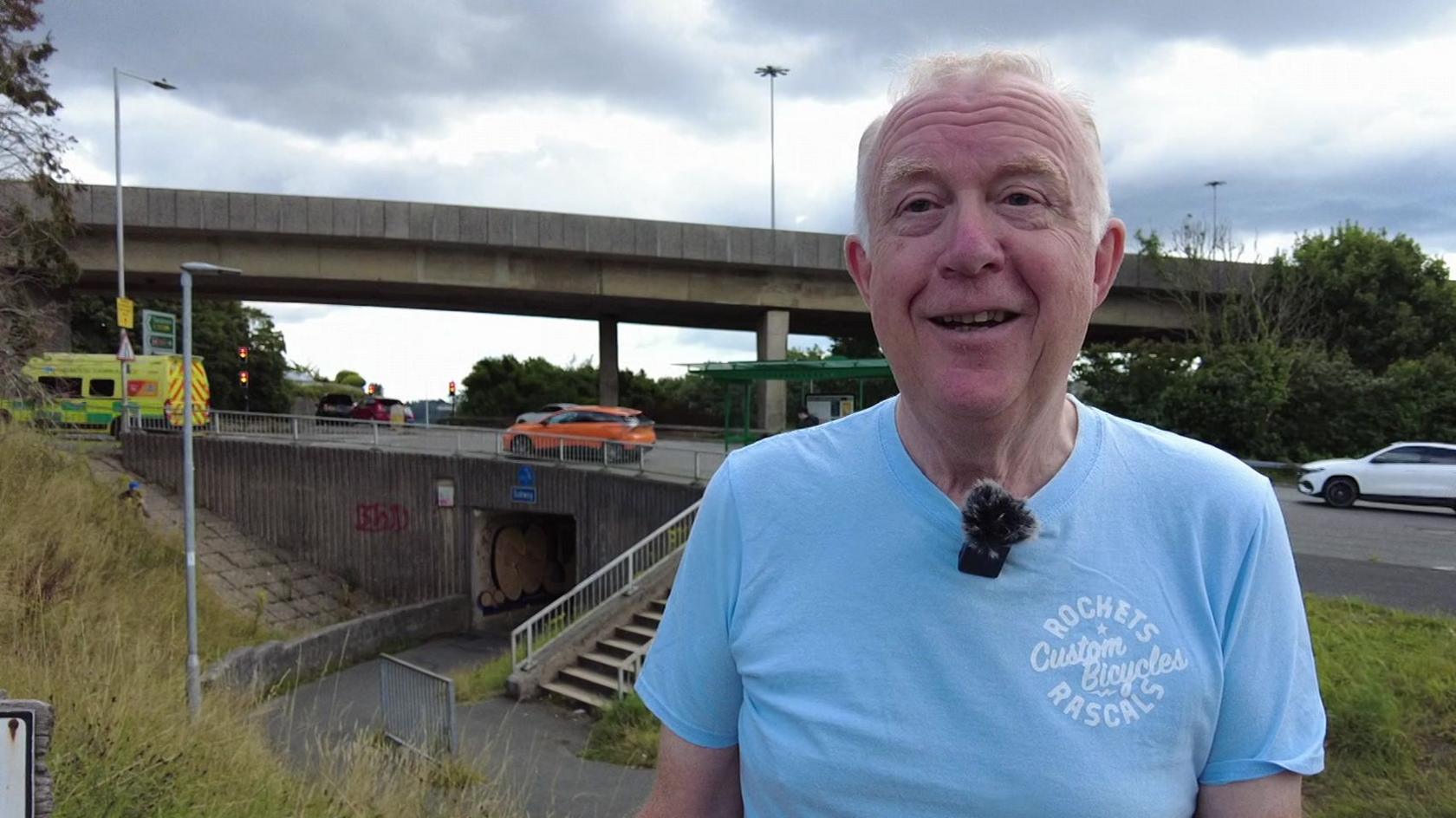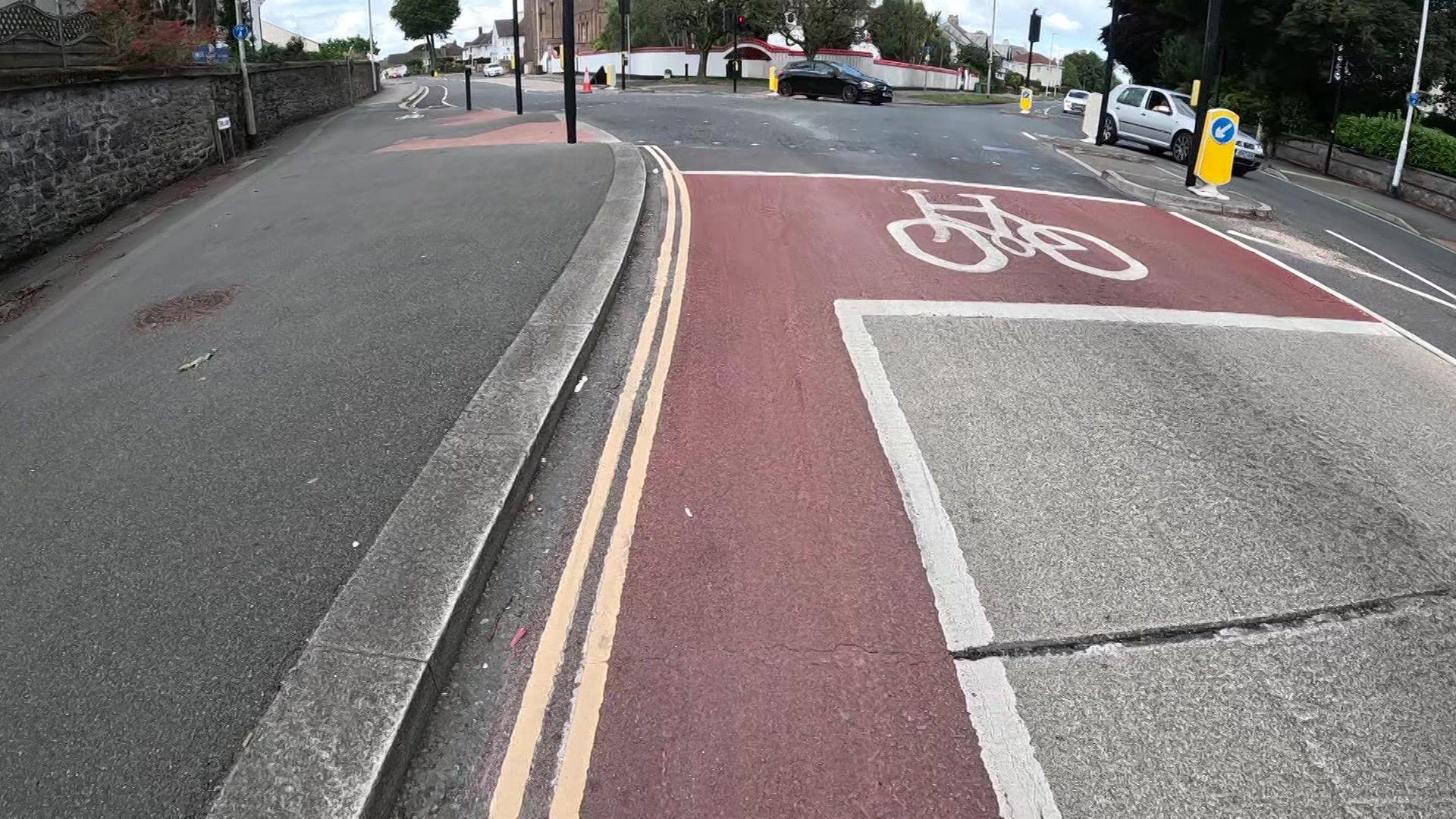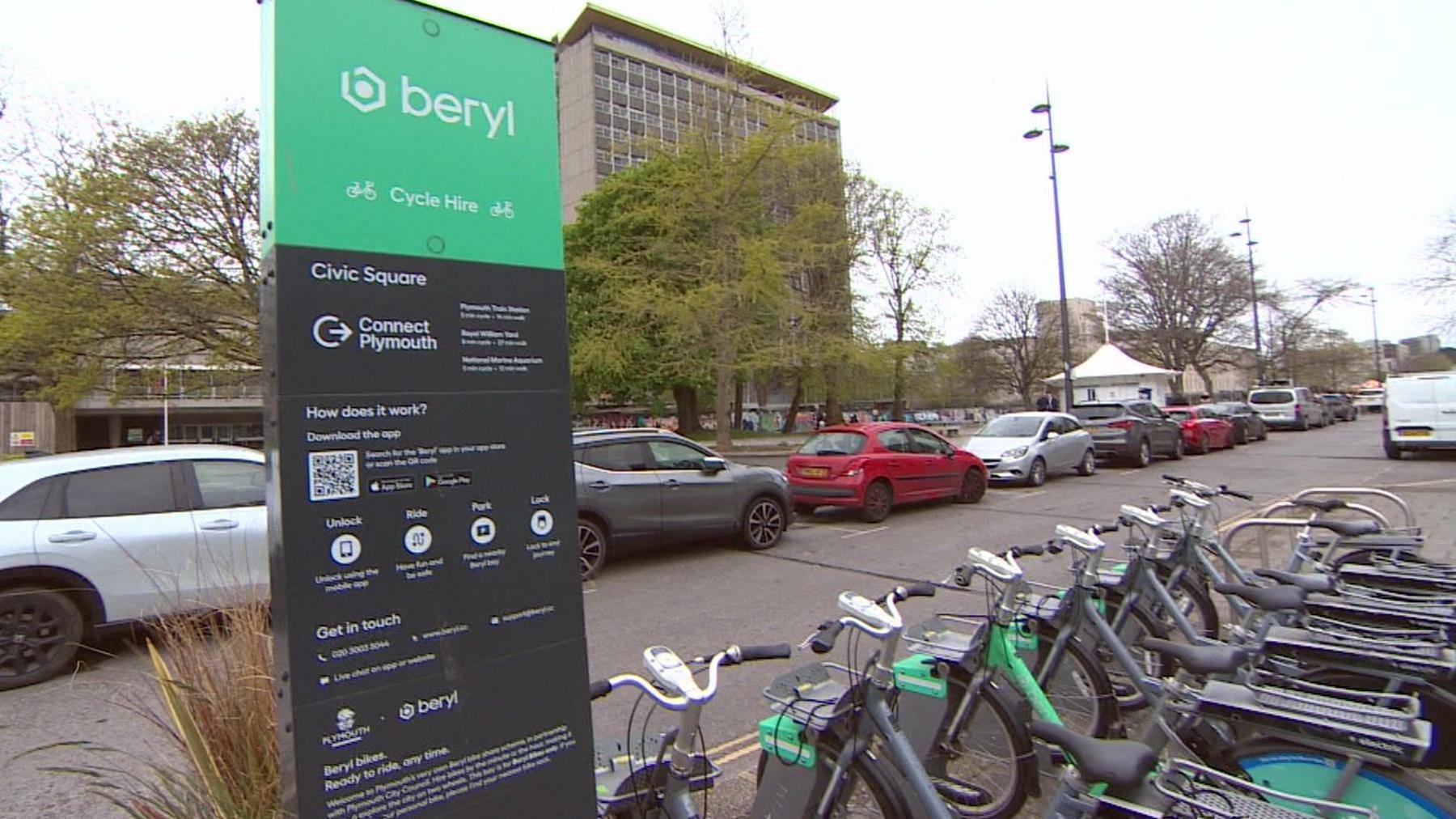'Council lacks will to encourage active travel'

The government wants to make walking, wheeling and cycling the preferred choice for short journeys
- Published
"Hazardous" – that is how Mark Swarbrick from the Plymouth Cycling Campaign has described getting around the city by bike.
He said: "The problem with the infrastructure in Plymouth is that it's fragmented. You've got cycle paths which just disappear and leave you stranded in the middle of the road.
"Most of the cycle paths in Plymouth that are on road are not segregated, so you're next to 40mph, 30mph traffic."
The government wants to make walking, wheeling and cycling the preferred choice for short journeys in towns and cities by 2030.
As part of its net zero strategy to bring down carbon emissions it wants half of local journeys to be made this way.

Mark Swarbrick said riders could often find themselves "next to 40mph, 30mph traffic"
Local authorities can apply to Active Travel England for funding to deliver walking and cycling improvements.
In February, Plymouth City Council received £1.3m from the Department for Transport-sponsored agency.
The local authority said some of this money was being spent on a high-quality traffic-free route between Colesdown Hill and Saltram Meadow.
But Mark Swarbrick said many of the cycle routes in the city were not connected to each other, making it necessary to ride on roads unprotected.
He said: "We're well short of the sort of network that's required to encourage active travel in Plymouth, and the trouble, I think, is that we lack the political will or leadership to make it a reality."
Plymouth City Council said: "While some sections of our walking and cycling network are built to a very good standard, there are gaps and we know this can lead to frustration and act as a barrier to how people choose to travel.
"That is why we are fully committed to delivering further improvements and will continue to press for investment to provide the best walking and cycling network we can for people living in, working in and visiting Plymouth."
Meanwhile, cyclists in Exeter have welcomed a £1.7m traffic-free route along Rifford Road which opened in June.
The Devon County Council-funded scheme included upgrades to the road, as well as providing segregated spaces for cycling and walking.

Plymouth has a number of dedicated cycleways on roads
"It's great," said James Diamond, chair of the Exeter Cycling Campaign.
"It does three things: it makes travel cheap, makes it safe and easy, it's also tackling air pollution issues."
The campaign carried out a 12-hour count on the route after some people criticised the scheme.
"We found over 1,200 people using it in a day – that's pedestrians, that's people on mobility scooters and that's people on bikes," said Mr Diamond.
Follow BBC Devon on X, external, Facebook, external and Instagram, external. Send your story ideas to spotlight@bbc.co.uk, external.
- Published15 April
